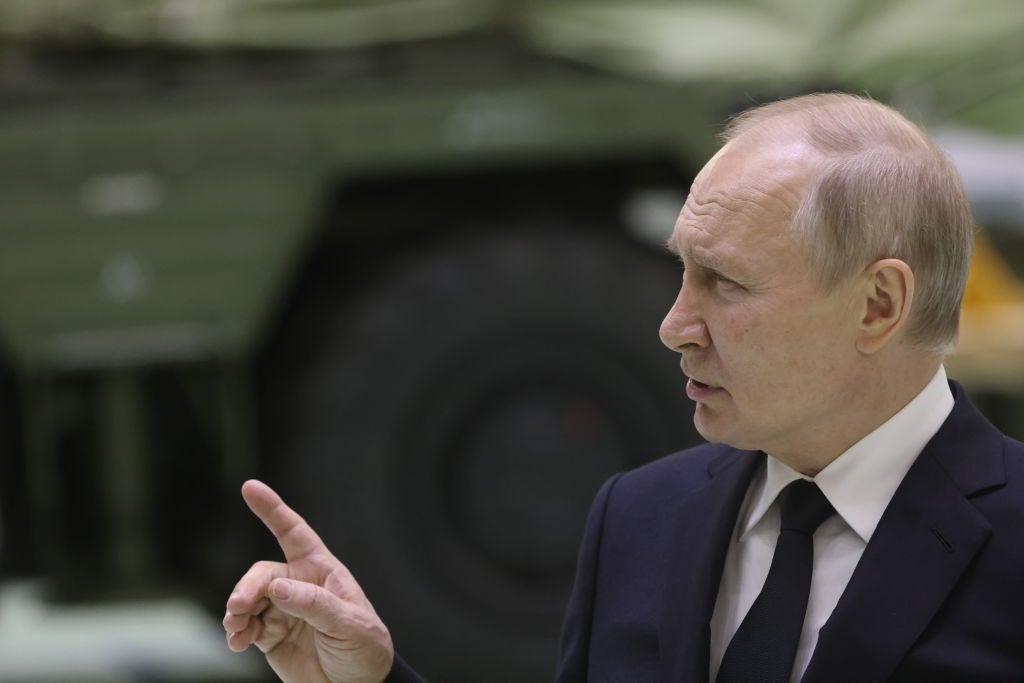
Contrary to the musings of what could be described as cynical opportunists, the unprecedented and historic exodus of more than 1,000 global corporations has played a significant role in pressuring the Russian economy one year into the invasion of Ukraine. This is the argumentative thrust of a brand new academic paper from the Yale School of Management, whose authoritative ranking of businesses leaving (or not leaving) Russia plays a key role in the praising and shaming of companies that are withdrawing or remaining.
“The great Russian retreat [of multinationals] is still holding strong and still eroding Vladimir Putin’s war machine finances,” the report’s primary author, Professor Jeffrey A Sonnenfeld of Yale, tells Investment Monitor. “These private sector exits work to reinforce governmental legal sanctions as functioned in prior successful cross-sector economic boycotts.”
Russia’s gross domestic product is predicted to drop by 2% in 2023, following on from an estimated 2.5% slide in 2022 (for a better understanding of impact of the war on Russia’s economy, see here).
However, while the courage of the companies that have exited (and which are in the process of exiting) is to be commended, there are still Western multinationals that continue to do business as usual in Russia, concludes the report, which goes on to spell out four key recommendations.
Encouraging continued corporate exits from Russia
It is important to appreciate the success achieved so far by more than 1,000 global businesses that have announced their exits from Russia (and with strong full, or partial, follow through).
That said, the challenges that remain are daunting. “At this point, there is no excuse for any Western company to remain in Russia from either a financial, economic, political, social or moral standpoint,” states the Yale-led research paper. “Advocates should continue to direct their attention towards the companies that bewilderingly refuse to exit despite the courageous stands of 1,000-plus of their global peers as well as those who show no actual progress towards divesting from Russia.”
The report recommends, firstly, that companies whose assets are trapped in Russia should write them off, as they are de facto nationalised by the Russian government, and secondly that they should go to the international courts and explicitly report Russia’s violation of international law and investors’ protection.
Heightened scrutiny on smuggling and evasion
The impact of hundreds of multinational corporations leaving Russia is somewhat diluted by rampant smuggling through neighbouring countries of aviation, electronics, apparel and other goods.
“Ensuring that opportunistic middlemen do not capitalise on corporate exits from Russia to smuggle black market goods into the country remains vital in choking off Putin’s access to the goods he needs to fuel his war machine,” writes the acadmic paper.
Debunking Putin-inspired propaganda
Putin has a long history of weaponising disinformation to foment divisions within his opponents, and in classic Putin fashion, he has repeatedly questioned whether Western businesses are really leaving Russia.
Media and analysts must be careful in distinguishing between genuine academic studies versus fraudulent data, misrepresentation and fabrication.
“We swatted down Putin-inspired sceptics that falsely challenged whether the business exodus was really happening or whether it really mattered to the health of the Russian economy,” says Sonnenfeld. “Now, a year later, a few commercial outfits and opportunistic academics still attempt to undermine the [exodus] through their confusion of the legal nuances of the exits. Putin, for propaganda reasons, has kept inaccessible escrow accounts and banned final asset disposition of both fully written-off assets and terminated employees by freezing capital movements and using PR smokescreens.”
Sonnenfeld says that the new paper draws attention to these cynical distortions. It is essential that we continue to ensure voluntary private sector cooperation with public sector sanctions, above and beyond the bare minimum required, he adds. This private sector initiative has huge, though often latent, power.



